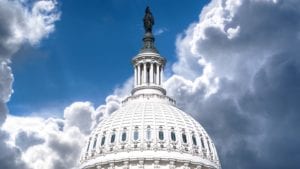“The latest somersaults and contortions over Obamacare last month spread from courtrooms to the blogosphere, with another round of regulatory “adjustments” not far away. The common principle followed by the health law’s most energetic advocates appears to be the whatever-it-takes motto of the late Oakland Raiders owner Al Davis, “Just win, baby!”
A pair of federal appellate court decisions on July 21 (Halbig v. Burwell and King v Burwell) sent Obamacare backers cycling through at least the first three stages of grief (anger, denial, and bargaining) over the potential loss of tax credit subsidies for states with federal-run health exchanges, along with the likelihood of further unraveling of the health law’s interrelated scheme of coverage mandates and tighter insurance regulation. A 2-1 majority ruling in Halbig delivered the latest blow to the Affordable Care Act, by deciding to vacate a 2012 Internal Revenue Service rule that attempted to authorize such subsidies.
The loudest voices among the flock of pro-ACA court watchers had previously declared such a judicial decision all but “inconceivable.” For example, Henry Aaron of the Brookings Institution termed these legal challenges to Obamacare as absurd, crazy, and wacky in an April 1, 2014 New England Journal of Medicine article. Jonathan Gruber of MIT and a key architect of both Massachusetts-based Romneycare and its cloned twin Obamacare called the tax credit theory behind the cases “screwy,” “nutty,” “stupid,” “unprecedented,” and “desperate” (but that depends on which version of Gruber one chooses to sample).
Tim Jost of the Washington and Lee University School of Law and a frequent blogger on this issue at Health Affairs, continues to be often wrong, but never in doubt—at least until later events require some modest repositioning. In July 2012, he flatly asserted that “these claims are simply false” regarding contentions that final IRS rules to enable premium tax credits through federal exchanges are unauthorized by law. Jost further opined that the only viable challengers with legal standing to contest the IRS rule would be employers failing to offer their employees insurance (or at least affordable or adequate coverage), but that any such challenges would be barred by the Tax Anti-Injunction Act until probably sometime in 2015.”
You are here:







